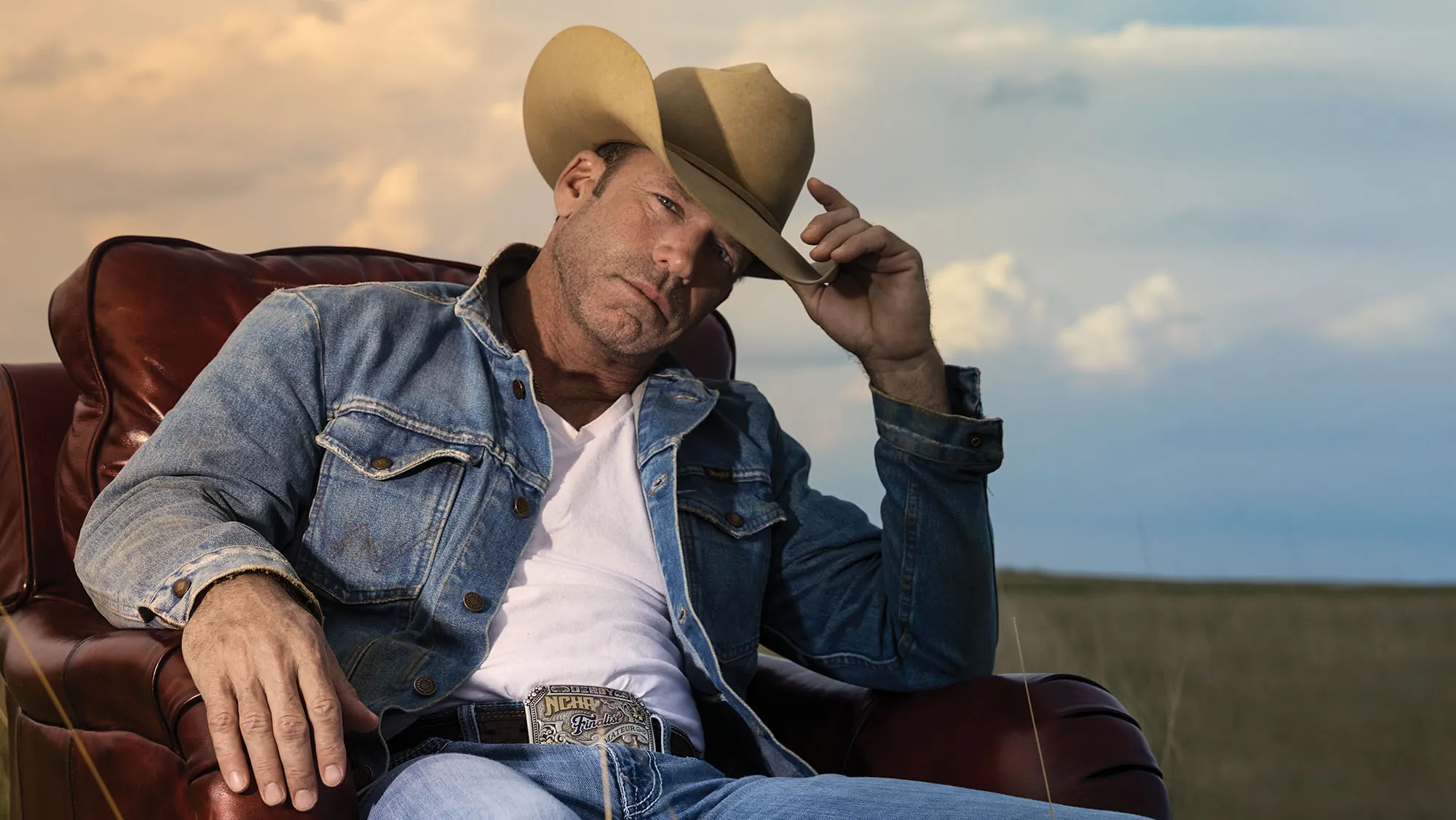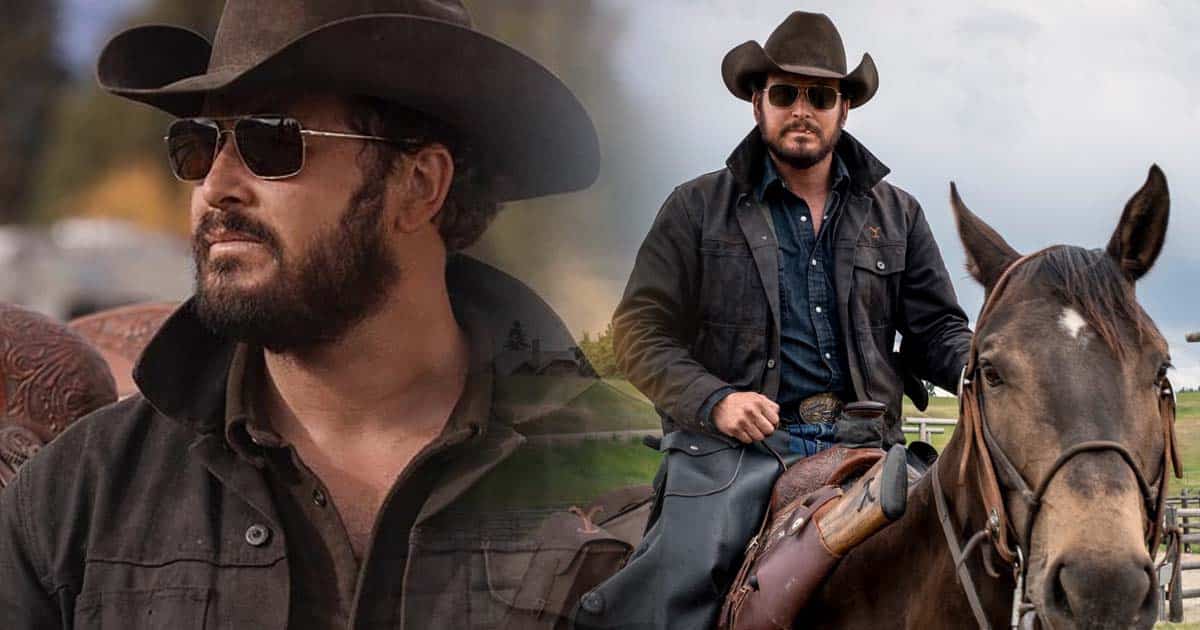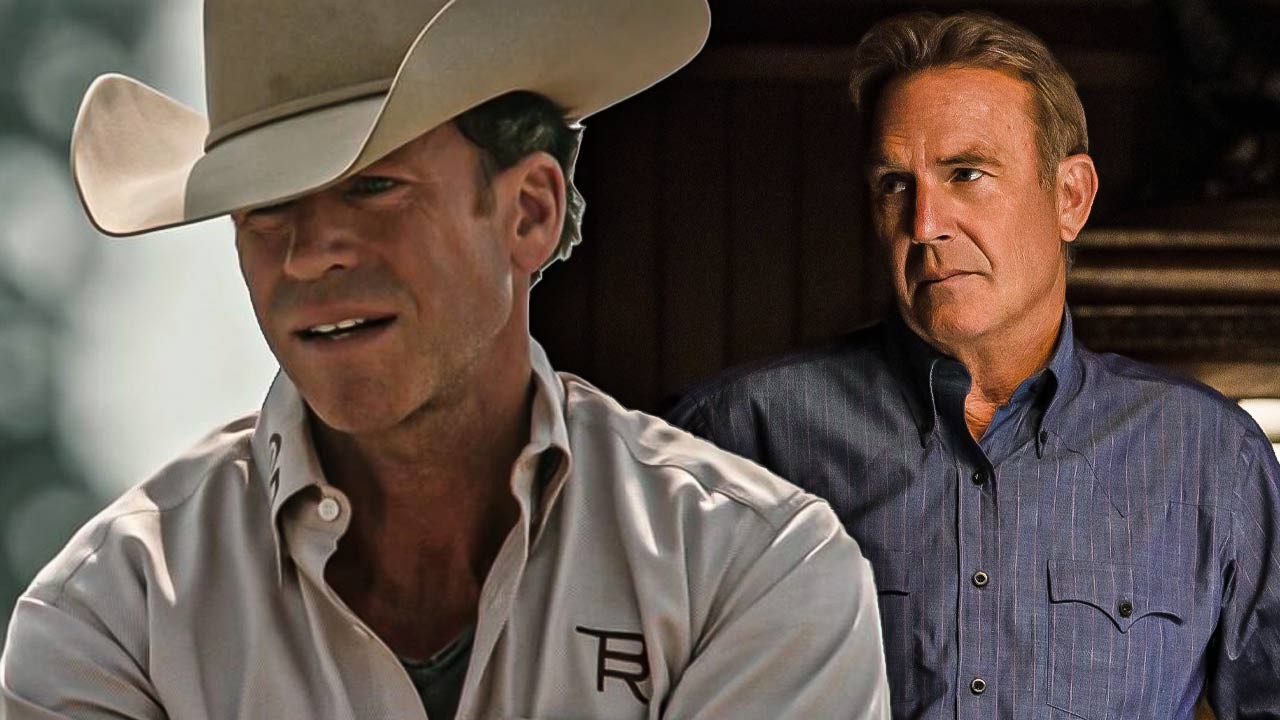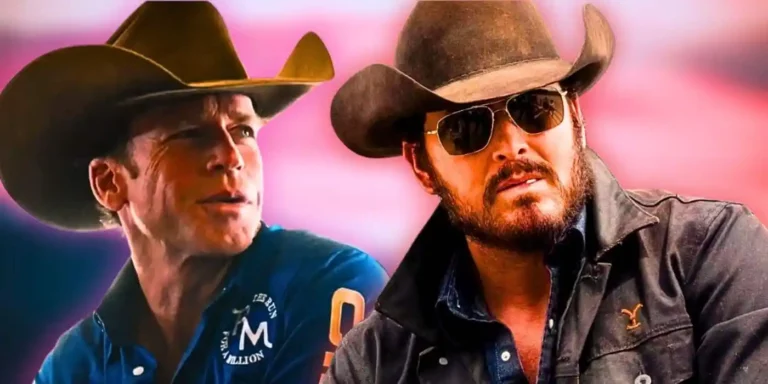In the realm of television where roles often become synonymous with the actors who portray them, Cole Hauser’s depiction of Rip Wheeler in the hit series “Yellowstone” stands out as a testament to the gritty realism and raw intensity he brings to the screen. Behind this portrayal lies an intriguing dynamic with the series creator, Taylor Sheridan, which includes a rather unconventional method of character development—a fistfight that surprisingly served to deepen their professional relationship and enhance Hauser’s performance.

The Actor Behind Rip Wheeler: Cole Hauser’s Journey
Cole Hauser’s journey to stardom was not one of overnight success but of perseverance and dedication. Born near Santa Barbara on a ranch, Hauser was familiar with horses from a young age, a skill that would later define his character in “Yellowstone.” However, life wasn’t always easy. Growing up with a father battling substance issues, Hauser moved to Los Angeles to pursue acting, a bold move that eventually landed him roles in notable films like “School Ties” and “Dazed and Confused.”
His role as Rip Wheeler required Hauser to revisit his riding skills and delve deeper into the complexities of his character, who is both a protector and enforcer for the Dutton family. The preparation for Rip Wheeler was intense and immersive, reflecting Hauser’s commitment to authenticity.

Taylor Sheridan’s Unconventional Directing Techniques
Taylor Sheridan, known for his roles in “Sons of Anarchy” and “Veronica Mars,” has made significant marks both in front of and behind the camera. His transition to writing and directing culminated in the creation of “Yellowstone,” a series that not only entertains but also explores the nuances of loyalty, power, and survival.
Sheridan’s approach to directing is as distinct as his storytelling. In an effort to draw out the deepest emotional and instinctual reactions from Hauser, Sheridan resorted to an unusual method during their second meeting — a physical altercation. While it might seem extreme, this method stemmed from a desire to tap into real, raw emotional reservoirs that would bring Rip Wheeler to life with authenticity and vigor.
Behind the Scenes: The Fight That Bonded Sheridan and Hauser
This method of getting into character might not be conventional, but for Hauser, it was just another day at the office. He confessed to being no stranger to physical confrontations, suggesting that sometimes actions speak louder than words.

“I’ve probably been in one on every continent… Sometimes I’m just tired of words, so let’s beat the s**t out of each other,” Hauser shared, adding humorously that such encounters usually end in a mutual toast.
This incident not only helped forge a deep bond between actor and director but also solidified Hauser’s portrayal of Rip Wheeler, making him a fan favorite, particularly among female audiences.
Taylor Sheridan as Mentor: Fostering New Talent
Sheridan’s influence extends beyond directing to mentoring upcoming talents. Hugh Dillon, who plays Sheriff Donnie Haskell in “Yellowstone,” is one such protégé. Their collaboration evolved with Dillon co-creating the thriller series “Mayor Of Kingstown” alongside Sheridan, showcasing Sheridan’s role as a mentor and creative catalyst. Dillon’s transition from actor to writer was significantly shaped by Sheridan’s guidance, highlighting his ability to inspire and elevate those around him.
This mentorship culminated in a series that not only entertains but also critically examines the intricacies of power and justice, resonating well with audiences and critics alike.
The Ripple Effect of Creative Collaboration
The partnership between Cole Hauser and Taylor Sheridan in “Yellowstone” exemplifies how off-screen interactions can profoundly influence on-screen dynamics. Their collaborative spirit, marked by moments of unconventional methods, has not only defined their careers but also enriched the viewing experience for fans worldwide. As “Yellowstone” continues to captivate audiences, it serves as a beacon of how creativity, mentorship, and a bit of unconventional methodology can meld to create television that is both compelling and deeply human.
